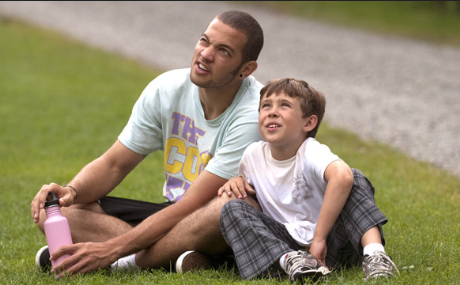The attributes of effective camp counselors: Changing youths’ perspectives of being “cool.”
summarized by Laura Yoviene
Taniguchi, S., Widmer, M., & Duerden, M. (2006). The attributes of effective camp counselors: Changing youths’ perspectives of being “cool.” Journal of Experiential Education, 29 (3), 378-381.
Across the country, there are numerous outdoor camp programs that are designed to promote positive outcomes in youth. The majority of the research on these programs tends to focus primarily on the quantitative outcomes (i.e., youth academic scores and outcomes), whereas the influential role of program counselors on at-risk youth has largely been ignored (Freeman, Anderson, Kairey, & Hunt, 1982; Middleman, 1989). Thus, the purpose of this qualitative study was to explore youths’ perceptions of the role their counselors play in promoting meaningful experiences in the context of this recreation program.
Method:
The study was conducted during one of Camp WILD’s 2-week sessions in Idaho. College-aged counselors mentored middle school boys who were identified as at-risk either academically or socially (n=22). Camp activities included mountain biking, white-water rafting, and other outdoor groups. The 22 boys (ages 11 to 16) were interviewed one-on-one by a researcher.
Results:
- 83% of the campers expressed that their adult team leader was a major reason for why they enjoyed their camp experience
- campers also reported camp was meaningful because they learned about “what they could accomplish when given the opportunity to explore”
- 21 of the 22 campers labeled the camp counselors as role models for them
- Campers identified the following as characteristics they have not seen in many of their previous experiences with adults:
- ambition
- service-oriented
- hard-working
- possessed identified goals
- interest in others
- unselfish with their time
- fun-loving
- sense of perceived freedom to accomplish whatever they wanted to do
Overall, these “counselors served as role models whose example provided a new direction for the participants’ newly realized capabilities”
Conclusion:
This study demonstrates the importance of the youth and counselor relationship, and given that youth more frequently attributed their meaningful experiences in the program to their interactions with their counselors rather than the outdoor camp activities. Accordingly, this implies that “the activities are more of a stage from which meaningful experiences for these at-risk youth are created by their interactions (with counselors).” Furthermore, the authors believe that counselors acting as role-models help the youth make meaning of their experiences through the following mechanism: during the outdoor recreation activities the youth encounters risk which results in a feeling of awkwardness. The youth then interprets their experience based on past experiences, however, with a role-model who is sharing the experience with the youth and providing constructive feedback, facilitates the youth being able to reflect on and reconstruct the experience; this can ultimately lead to a phase of growth for the youth. Thus highlighting the critical importance of an effective counselor in the process of a youth’s meaning making.


